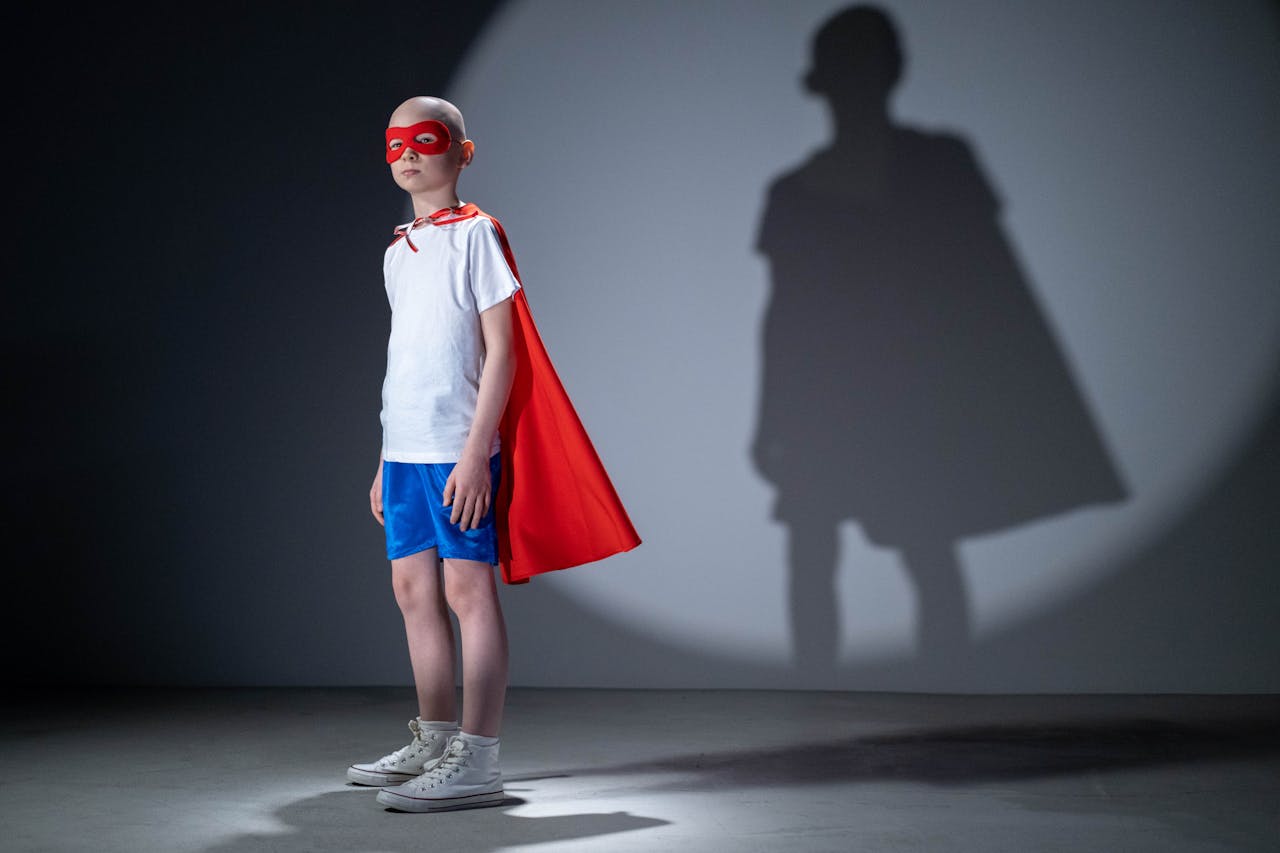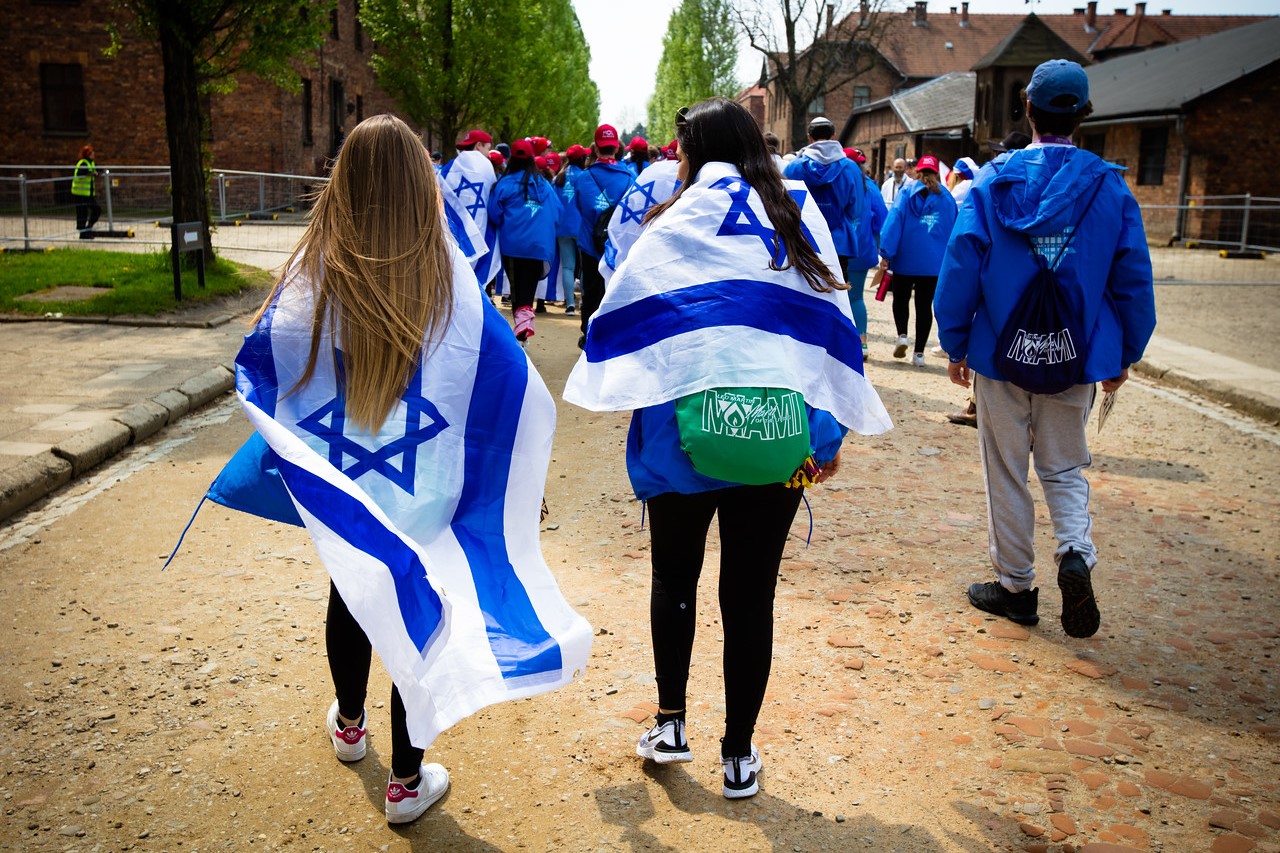The Clothes We Wear

This week’s Dvar Torah "The Clothes We Wear" was condensed from one written by Rabbi Fredrick Klein, Director of Mishkan Miami: The Jewish Connection for Spiritual Support, Rabbi of the Greater Miami Jewish Federation, and Executive Vice President of the Rabbinical Association of Greater Miami.

Photo by cottonbro studio pexels.com
|
A Special Thank You...
We at CAJE are so proud of Miami survivor and past March of the Living participant David Schaecter, who as president of the Holocaust Survivors’ Foundation USA (HSF), condemned The Zone of Interest director Jonathan Glazer for his divisive Oscar acceptance speech that linked his film’s Holocaust subject matter to criticism of Israel’s ongoing Gaza conflict with these words: |
|
I am 94 years old and the only member of 105 souls in my family to survive the Holocaust. I miraculously survived nearly three years in the hell of Auschwitz and one year in the hell of Buchenwald.
I watched in anguish Sunday night when I heard you use the platform of the Oscars ceremony to equate Hamas’s maniacal brutality against innocent Israelis with Israel’s difficult but necessary self-defense in the face of Hamas’s ongoing barbarity.
Your comments were factually inaccurate and morally indefensible.
The “occupation” of which you speak has nothing to do with the Holocaust. The Jewish people’s existence and right to live in the land of Israel predates the Holocaust by hundreds of years.
Today’s political and geographic landscape is the direct result of wars started by past Arab leaders who refused to accept Jewish people as their neighbors in our historic homeland.
Now that several Arab countries are making peace with Israel because security and prosperity are better for all people, Iran and its terrorist proxies started another war, abetted by too many, who, through naïveté or malice, blame 'the occupation.'
Worse is that you chose to use the Holocaust to validate your personal opinion. You made a Holocaust movie and won an Oscar. And you are Jewish. Good for you.
But it is disgraceful for you to presume to speak for the six million Jews, including one and half million children, who were murdered solely because of their Jewish identity.
And it is disgraceful for you to presume to speak for those of us who personally saw the world stand silent as our mothers, father, brothers, sisters, grandparents, aunts, uncles, and cousins were murdered.
We actually had nowhere to go — no possible place for refuge. No country would accept us even though world leaders knew full well that thousands of Jews were being murdered every day.
There was no Jewish nation to which we could flee. You should be ashamed of yourself for using Auschwitz to criticize Israel. |
A week does not go by without another new superhero movie.[1]
Americans seem obsessed with the superhero, as it provides an escape. A regular person, no different than you or me, has a unique ability.
In every film, they are called to use a secret power, and then disguise themselves so their identity will not be revealed.
Take Spiderman for example. He possesses unique abilities, and needs to know how to use them, because at heart he is just a teenage boy trying to make his way, get the girl, and gain acceptance among his peers.
There is one glaring exception to the rule, which we will explore below.
Our parasha, Pekudei, repeats almost verbatim the instructions read two weeks ago regarding the building of the tabernacle.
An entire chapter (Shemot/Exodus 39) is spent speaking about the priestly vestments, the uniform worn by Aaron and his sons when they performed the Divine sacrificial worship.
There was Aaron the family man, a member of the tribe of Levi, the brother of Moses and Miriam, and even the one that fashioned the golden calf- an event that the midrash states haunted him for many years to come. This Aaron was like any one of us, with both real gifts as well as character flaws.
However, when he put on the eight garments commanded by the Torah, he became the high priest. He wore the gold, blue, purple, and crimson yarns and fine twisted linen, reminiscent of kings…
Most importantly, on his head perched a golden diadem with the words “Holy unto God….”
In essence, like a superhero, the moment Aaron donned the priestly clothing he became a symbol for the enduring relationship between the Jewish people and God initiated at Mount Sinai.
At the moment he put on these garments, he was granted the power to connect heaven and earth, the infinite with the finite…
Until now we have said that Aaron was distinct from the clothing of the High Priest, that when he put on the priestly clothing he simply assumed a role, a role that was not necessarily coextensive with his true self.
But perhaps the truth was the reverse: when he put on the garments of the High Priest he became his true self, who he truly was meant to be. Other times he was just playing a role.
Indeed, when Aaron entered the most private of places, the Holy of Holies, the place where once a year he communed with God, he wore various priestly garments.
Seen as a metaphor, in the most inner places of our soul, that part of us that connects to the Divine, perhaps we are priests meant to bring the Divine presence into this world.
God commanded the Jewish people when they received the Torah, “Be unto Me a kingdom of priests and a holy nation (Shemot/Exodus 19:6);” God did not say ‘dress up like a priest,’ but ‘become a priest.’ Since you are a priest, you therefore should wear the correct uniform…
As I hinted above, there is one superhero that doesn’t fit the mold, a superhero created by two Jews in Cleveland, Ohio in the 1930s. In the early comics, this superhero fought the modern- day Haman, the Nazis.
Of course, this superhero is none other than Superman. Unlike other superheroes, regular people with extra-ordinary gifts, Superman at his core is Superman. To function in the world around him he creates a disguise-- the character of Clark Kent.
He tries to ‘fit in’, to become ‘everyman’. Ultimately however, no matter how hard he tries, he cannot escape the ultimate truth. In reality he is not the mild man and reporter, but in reality he is ‘faster than a speeding bullet, more powerful than a locomotive, able to leap tall buildings at a single bound.’
When he runs to change into his costume in the phone booth, he does not put on a costume, but rather takes off his pedestrian clothing to reveal his inner uniform, for that inner uniform represents his true self.
To connect this to our parashah, his costume is like the vestments of the high priest, not a disguise or a role, but rather, his essential and true clothing in this world.
Like Superman who tried to disguise himself, we Jews sometimes have to disguise ourselves to fit in, so much so that at times we have forgotten who we are.
However, there are moments when we Jews want to strip off the disguise, we want to don the priestly garb. We do this not because we are playing a role, but because when we can access the deepest recesses of our hearts we realize that this is who we truly are.
The Jewish people are meant to be a kingdom of priests and a holy nation; this is not a role we play, but it is our identity.
When we walk through life, each of us as Jews and as human beings, need to consider the most fundamental of questions.
What is the “clothing” we wear, and does that “clothing” align with our ultimate values?
Like Superman, each can feel compelled to hide ourselves from ourselves to ‘fit in.’ However, there are times in history where we need to pull off the disguise and wear our true costume with pride.
A time like now.
[1] The following insight was impressed upon me by Dr. Oren Stier, Professor of Religious Studies at Florida International University and I thank him for his comments.
Shabbat Shalom




